Bankruptcy and Creditor Worksheets
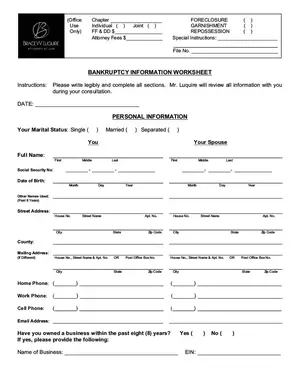
Documents To Bring With You
1. Home/Foreclosure If you own or are purchasing a home and live outside Muscogee County, you will
need to bring the tax notice you received from the tax commissioner. In addition, if
foreclosure proceedings have been started against you, bring any notice(s) you
have received.
2. Vehicle Payments & Repossessions If you are making payments on a car(s), you will need to bring:
* The paperwork from when you purchased the car;
* Insurance information on the car.
In addition, if your lender has threatened repossession or your car has been
repossessed, bring contact information for your lender.
3. Wage Garnishment/Lawsuits If you have been served with a garnishment or lawsuit, you will need to bring
those with you.
4. Pay Stubs You will need to bring all pay stubs you have available for the past six months:
| Month of Appointment | Pay Stubs Beginning |
|---|---|
| January | July of previous year |
| February | August of previous year |
| March | September of previous year |
| April | October of previous year |
| May | November of previous year |
| June | December of previous year |
| July | January of current year |
| August | February of current year |
| September | March of current year |
| October | April of current year |
| November | May of current year |
| December | June of current year |
5. Tax Return You must bring the last tax return you filed.
When you have been charged with a crime, bring Brace any paperwork you have received such as police report and tickets. You will need the names and addresses of any witnesses you think can help with your case. It is important to be represented early in the case.
When you come to the office, bring any tickets and other documents you received from the police office or jail. If your license was held by the police and you were given a temporary permit, you may only have a few days to file an appeal of an administrative suspension which will suspend your license even if the DUI is dismissed. Time is important.
You have lost a loved one and the additional burden of handling the estate falls on you, Brace can ease the burden of probate. You will need to bring the original will, a copy of the death certificate and the names and addresses of any relatives of the decedent. We understand that your time is valuable, so you are encouraged to print these forms and complete them or complete them online and submit to our office for printing prior to your appointment. If you do not have a printer and prefer not to complete them online, you may stop by our office and pick up the forms or simply arrive a few minutes early and complete them here in our office prior to your appointment.
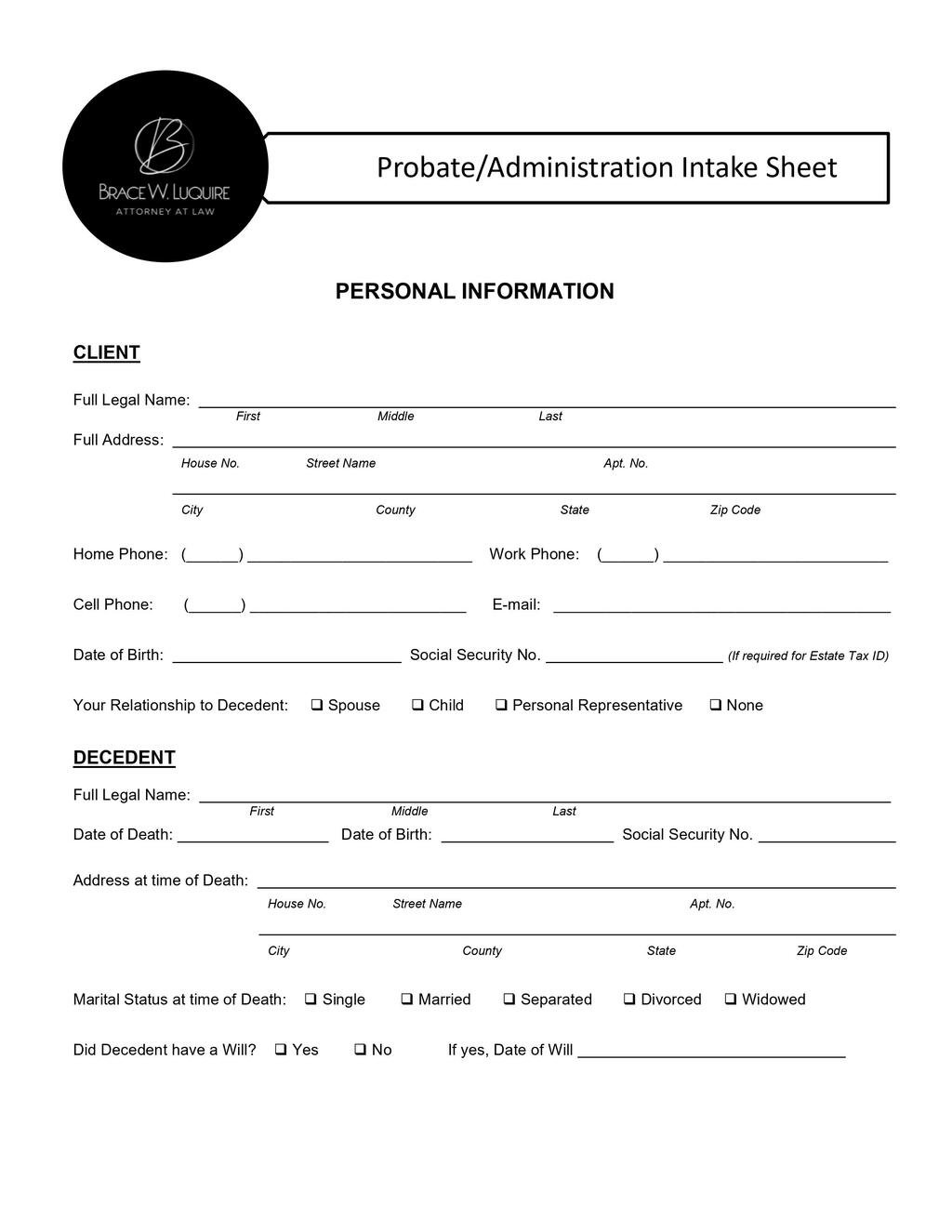
You will need to have the information about your assets and who you want to take the estate under the will. You will also need to name an executor and trustee (if necessary). We understand that your time is valuable, so you are encouraged to print these forms and complete them or complete them online and submit to our office for printing prior to your appointment. If you do not have a printer and prefer not to complete them online, you may stop by our office and pick up the forms or simply arrive a few minutes early and complete them here in our office prior to your appointment.
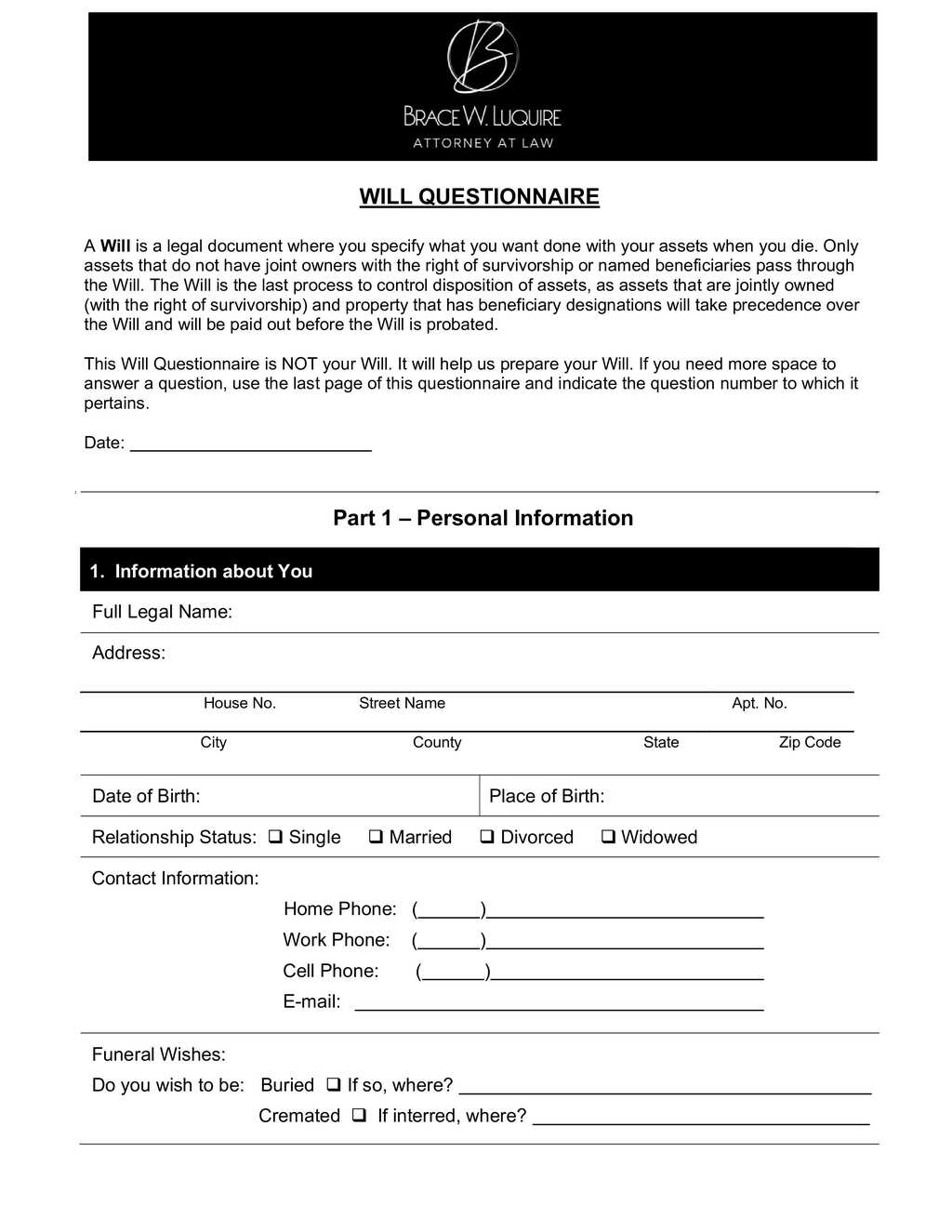
If you have any questions, please do not hesitate to contact us. If you are unable to keep the scheduled appointment, please call the office
reschedule.
We look forward to assisting you with your legal needs.
Debtor Education Course
You MUST attend a debtor education course before you get a discharge. Usually, you have paid for this course with your initial payment to our office. During your 341 Meeting, we will provide you with the information necessary for you to complete this course. You will probably receive solicitations/advertising through the mail from various companies offering this course. DO NOT take the course through these companies as they will charge you.
Address & Employment Changes
You are required to keep our office informed of your current address, telephone number, and employer's name and address. Please use the Address Change Report and Employment Change Report form below to notify us in writing of any changes. We will notify the court and the Trustee's office.
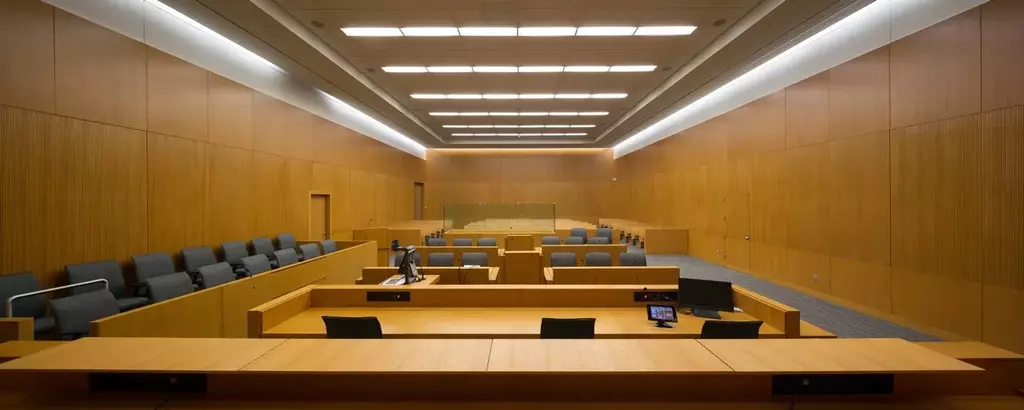
Meeting of Creditors
You will receive notice of your 341(a) Meeting of Creditors a few days after filing your Chapter 7 petition. Your attendance is required. You are required to show some form of picture identification and proof of your Social Security number during the hearing which we will have already provided to the Trustee prior to the meeting.
Please arrive at least 15 minutes prior to the meeting time. In addition, if you have a home or automobile financed which you intend to keep and reaffirm, you will need to be prepared to show proof of casualty/fire insurance on your home and full coverage insurance on your automobile, naming the mortgage holder/lien holder as loss payee.
What to Expect at your Meeting of Creditors
The Chapter 7 trustee will ask the following questions after receiving your picture ID and proof of your social security number:
* Your name?
* Your address?
* Have you read the bankruptcy information sheet? (This sheet is included in the package of information we gave you
when you signed.)
* Did you provide the information in the schedules and statements in the bankruptcy? (This is the information you gave
me that we put in the bankruptcy petition and schedules that were filed.)
* Is the information true and correct?
* Did you sign the schedules and statement of affairs?
* Did you read the bankruptcy petition, schedules, and statement of affairs before you signed it?
* Are you familiar with the information contained in the petition, schedules, and statement of affairs?
* Is the information in that petition, schedules, and statement of affairs correct to the best of your knowledge and belief?
* Are all of your debts and all of your liabilities included in the bankruptcy?
* Have you ever filed bankruptcy before?
* (If you own a house or real property) When was the house purchased, and for how much? When was the loan made? If
there is a second mortgage, when was it made, and how much are the mortgage(s)?
Other Hearings
Other hearings may be scheduled during the pendency of your Chapter 7 case. These hearings include, but are not limited to, a creditor's motion for relief from stay. You will be required to attend these hearings unless the motion is withdrawn prior to the hearing date. You should contact our office upon your receipt of any motion to obtain the information we need to resolve the issue.
If an emergency ever arises, which makes it impossible for you to attend any court hearing, please notify our office immediately.
Your Responsibilities
Insurance
You are required to maintain casualty/fire insurance on your home and full coverage insurance on your automobile and name the mortgage holder/lien holder as loss payee. Please provide our office with a copy of the declaration page for our files. Your failure to maintain the insurance could result in the creditor seeking relief from the stay, and you could ultimately lose your home and/or automobile.
Court Hearings
It is your responsibility to attend all court hearings unless otherwise instructed by our office. Your failure to do so could result in the dismissal of your case or the loss of property.
Address & Employment Changes
You are required to keep our office informed of your current address, telephone number, and employer's name and address. Please use the forms provided on our General Information for Our Valued Chapter 7 and Chapter 13 Clients page to notify us in writing of any changes. We will notify the court and the Trustee's office.
Reaffirmed Debts
If you are retaining any property with a lien, you will be required to reaffirm that debt with the creditor. You should continue to make payments to any secured creditor you are reaffirming during your bankruptcy's pendency. Your failure to do so could result in the creditor refusing to allow you to reaffirm the debt and obtaining relief from the stay to foreclose or repossess the property securing the debt.
Complaints to Determine Dischargeability of a Debt
Sometimes, a creditor will file a motion with the court to determine if their debt is dischargeable. You must realize this is a separate action and will result in additional attorney's fees. There are time limits for filing answers and additional court hearings on these types of complaints. If you receive one during your case, you should immediately contact our office to schedule an appointment to meet with Columbus, Georgia, bankruptcy lawyer Brace W. Luquire to discuss the complaint.
Debtor Education Course
You MUST attend a debtor education course prior to your getting a discharge. Usually, you have paid for this course with your initial payment to our office. During your 341 Meeting, we will provide you with the information necessary for you to complete this course. You will probably receive solicitations/advertising through the mail from various companies offering this course. DO NOT take the course through these companies as they will charge you. Please see our General Information for Our Valued Chapter 7 and Chapter 13 Clients page for information on the course.
There are several trustees. You will receive a notice from the bankruptcy court with the name, address and telephone number of the trustee appointed on your case.
If they call you, simply tell them that you have filed a Chapter 7, provide them with your case number and refer them to our office. If they mail you a statement or threatening letter, simply note on the correspondence that you have filed Chapter 7 and your case number and mail the correspondence back to them.
Simply bring the lawsuit, garnishment or foreclosure/repossession notice to our office and we will take care of it.
Your discharge does not protect a codebtor or guarantor. The creditor can pursue collection activity against the codebtor or guarantor.
You can add creditors to your bankruptcy after the filing and prior to your discharge being entered upon the payment of an amendment fee and so long as the debt was incurred prior to your filing. Please contact our office for further instruction.
Your discharge is eligible to be entered after sixty (60) days from the date of your 341(a) Meeting of Creditors. Upon expiration of the sixty (60) day period, the court will enter the discharge and send you a copy. The discharge will discharge you from all debts which are dischargeable. Some debts which are not dischargeable include (but are not limited to) alimony, maintenance, support, student loans, priority taxes, debts for death or personal injury caused by your operation of a motor vehicle while unlawfully intoxicated, debts for restitution included in a criminal sentence imposed on you and those debts which you have chosen to reaffirm and a reaffirmation agreement is filed with the court prior to your discharge. For a complete list of nondischarged debts, please refer to the discharge entered by the court in your case.
Notify us by mail with the information. Please use the forms provided on our General Information for Our Valued Chapter 7 and Chapter 13 Clients page to notify us in writing of any changes. We will notify the court and the trustee's office.
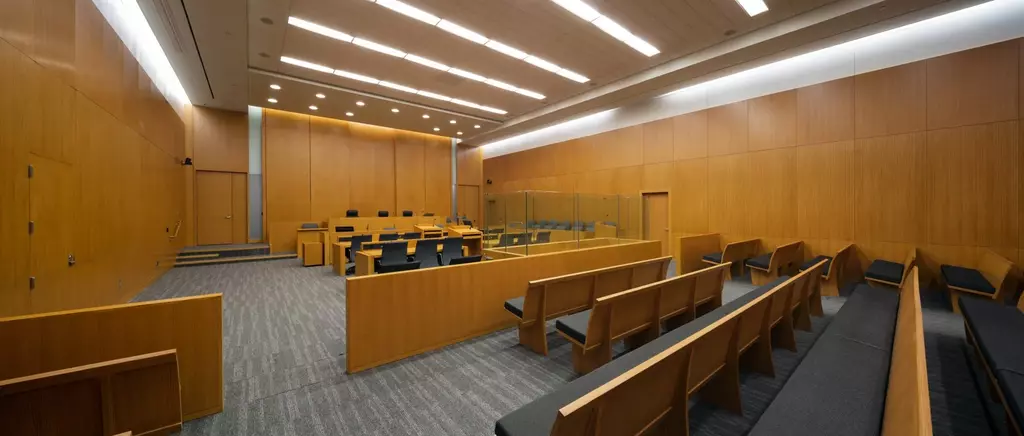
Meeting of Creditors
You will receive notice of your 341(a) Meeting of Creditors a few days after filing your Chapter 13 petition. Your attendance is required. You are required to show some form of picture identification and proof of your Social Security number which we will have already provided to the Trustee prior to the meeting.
Please arrive at least 15 minutes prior to the meeting time. In addition, if you have a home and/or automobile financed which you intend to keep and reaffirm, you will need to be prepared to show proof of casualty/fire insurance on your home and full coverage insurance on your automobile, naming the mortgage holder/lien holder as loss payee.
Confirmation Hearing
Your Confirmation Hearing is scheduled approximately one (1) month after the 341(a) Meeting of Creditors. The exact date is on the notice you will receive from the bankruptcy court. Unless there are problems with your case, you will probably not need to attend this hearing. Confirmation hearings are held in the Bankruptcy Court Courtroom. Please see our General Information for Our Valued Chapter 7 and Chapter 13 Clients page for the exact address and map.
You need to call our office a day or so prior to the hearing date to see if you need to attend. If there is a problem with your case and you fail to call our office for instructions or attend the confirmation hearing, your case may be dismissed.
Other Hearings
Other hearings may be scheduled during the pendency of your Chapter 13 case. These hearings include, but are not limited to, the Trustee's motion to dismiss and a creditor's motion for relief from stay. You will be required to attend these hearings unless the motion is withdrawn prior to the hearing date. You should contact our office upon your receipt of any motion so that we can obtain the information we need to resolve the issue.
If an emergency ever arises, which makes it impossible for you to attend any court hearing, please notify our office immediately.
Chapter 13 Plan Payments
Your first payment is due within 30 days of your case being filed. Your first payment will come due prior to any court hearings. Please be advised that court dates do not affect the beginning date of your payments. You cannot wait until after your court date to begin payments, or you will fall behind, and we will be unable to have your case confirmed.
A wage deduction order may be sent to your employer. If you change employers at any time during the pendency of your Chapter 13, you must immediately notify our office of your new employer's name and address. Please use the form provided on our General Information for Our Valued Chapter 7 and Chapter 13 Clients page to notify us in writing of the change.
Until you see the payments being deducted from your check or if a wage deduction order is not being entered, you are responsible for the payments. The payments must be in the form of a money order or cashier's check (be sure to include your name and case number) and mailed to:
Office of the Chapter 13 Trustee – Columbus
P.O. Box 116347
Atlanta, Georgia 30368-6347
Do not mail any correspondence to this address!
You should maintain records of all payments you make directly to the Trustee. Once your case has been confirmed, if you do not have a wage deduction order in effect, you may use the Trustee's ePay Online Payment System. You may find information about ePay here:
Manage Your Case Online
You can access your Chapter 13 bankruptcy information when it's convenient to you through the National Data Center. On NDC, you may view your transaction status and history to stay informed about your case and to keep yourself informed and on track during your payment plan. You may access NDC here:
Your Responsibilities
Chapter 13 Plan Payments
You are responsible for insuring your Chapter 13 plan payments are made on a timely basis. If a wage deduction order is entered in your case, you are responsible for the payments until such time as your employer begins the deduction. If your employer fails to honor the wage deduction order, it is still your responsibility to make the payments. Your employer's failure does not excuse the payments.
Mortgage Payments & Other Payments Not Paid Through Your Plan
You need to review your Chapter 13 plan and the information sheet we provided you to determine if any payments are to be made directly by you. If there are payments that need to be made by you outside your plan, you must make these payments on a timely basis. Your failure to make the payment could result in the creditor seeking relief from the stay, and you could ultimately lose any property securing that creditor's debt. You may find a Mortgage Payment Log here to help you keep track of your mortgage payments during your Chapter 13 case.
Insurance
You are required to maintain casualty/fire insurance· on your home and full coverage insurance on your automobile and name the mortgage holder/lien holder as loss payee. Please provide our office with a copy of the declaration page for our files. Your failure to maintain the insurance could result in the creditor seeking relief from the stay, and you could ultimately lose your home and/or automobile.
Court Hearings
It is your responsibility to attend all court hearings unless otherwise instructed by our office. Your failure to do so could result in the dismissal of your case or the loss of property.
Address & Employment Changes
You are required to keep our office informed of your current address, telephone number, and employer's name and address. Please use the forms provided on our General Information for Our Valued Chapter 7 and Chapter 13 Clients page to notify us in writing of any changes. We will notify the court and the Trustee's office.
Debtor Education Course
You MUST attend a debtor education course before you get a discharge. Usually, you have paid for this course with your initial payment to our office. During your 341 Meeting, we will provide you with the information necessary for you to complete this course. You will probably receive solicitations/advertising through the mail from various companies offering this course. DO NOT take the course through these companies as they will charge you. Please see our General Information for Our valued Chapter 7 and Chapter 13 Clients page for information on the course.
Your Chapter 13 trustee is: Jonathan W. DeLoach. His office is located at:
1031 Front Ave.
Columbus, GA 31901
His mailing address is:
P.O. Box 1907
Columbus, GA 31902
His telephone number is: 706-327-4151
Do not mail any payments to either of these addresses!
If they call you, simply tell them that you have filed a Chapter 13, provide them with your case number and refer them to our office. If they mail you a statement or threatening letter, simply note on the correspondence that you have filed Chapter 13 and your case number and mail the correspondence back to them.
Simply bring the lawsuit, garnishment or foreclosure/repossession notice to our office and we will take care of it.
If you want to protect the codebtor or guarantor, the debt must be paid in full through your Chapter 13 plan. If you do provide for the debt to be paid in full through your plan to protect the codebtor, then the creditor is prohibited from attempting to collect the debt from the codebtor or guarantor. If not, the creditor can seek relief from the stay through the court against the codebtor or guarantor and pursue collection activity against the codebtor or guarantor.
You must obtain permission from the court to sell any property during the pendency of your Chapter 13. Contact our office for specific instructions as to the documentation you will need to provide and the steps we will need to take.
You must obtain permission from the Chapter 13 trustee to obtain any type of credit. You need to contact the trustee's office for specific instructions on how to obtain that permission. Please be advised that if you seek to obtain additional credit during your Chapter 13 case, the trustee can (and usually does) adjust your plan, requiring you to pay your creditors in full (which would cause your Chapter 13 payments to increase).
You cannot trade in your vehicle during the pendency of your Chapter 13 case.
Either the lien holder of your automobile will receive the insurance proceeds or we can obtain permission from the court to allow you to use the insurance proceeds to purchase a new vehicle and substitute the new vehicle for the totaled vehicle. If you want to make the substitution, you will need to notify our office of the amount of the proceeds and the insurance company's name and address. Please be advised that this process takes approximately 30 days to complete. You would not be allowed to purchase a vehicle until that time. You may find further information on Substitution of Collateral here.
You can add creditors to your bankruptcy after the filing upon the payment of an amendment fee and so long as the debt was incurred prior to your filing. Please contact our office for further instruction. You may provide the information by email, but the fee must be paid prior to the petition being amended.
The attorney's fees are based on the time and effort expended on your case. The initial fees are approved by the court and are for the fees incurred through confirmation of your plan. Any additional work completed on your case after confirmation is again based on the time and effort expended and is approved by the court upon the filing of a motion for fees made to the trustee. All fees approved by the court are paid by the trustee from the payments you made to the trustee.
If you lose your job and are unable to make your Chapter 13 payments, eventually the trustee will file a motion to dismiss. At that time, you will have to either work out some arrangement with the trustee to make up any missed payments, convert your case to one under Chapter 7 to receive a discharge from your debts (if you are eligible to convert) or your case will be dismissed (allowing your creditors to pursue collection activity, including foreclosure proceedings, repossessions and garnishments).
If you have a reduction in your income which causes a hardship for you to make your Chapter 13 payments, you need to notify our office immediately so that we may review your case to see if it would be possible to reduce your Chapter 13 payments. If not, eventually the trustee will file a motion to dismiss and you will have the same options as outlined above.
You must be in a Chapter 13 for a minimum of three (3) years (unless your creditors are paid in full prior to the three-year period), but no more than five (5) years. The exact time will be dependent on the total of claims filed by the creditors in your case and your timeliness in paying your Chapter 13 payments. The trustee will give an approximate length of the plan in the report to the court for confirmation; however, should the claims be more than anticipated or if you miss any payments during the pendency of your case, the plan will extend beyond the length approximated by the trustee.
If you have proof (written documentation, canceled checks, receipts, etc.) that a creditor's claim is incorrect, please provide the proof to our office and we will object to that creditor's claim and have the claim denied or reduced, whichever is applicable.
It is not uncommon for the trustee to file an objection to a creditor's claim. If an objection is filed, you as well as our office will be provided with a copy. This objection is between the creditor and the trustee. The creditor, not you nor our office, is required to take action on this type of objection.
It is not uncommon for creditors to file objections to confirmation of your case. They usually base their objections on the value and/or lack of interest. Our office will handle these objections. You are not required to take any action. However, sometimes these objections are based on lack of full-coverage insurance. In this case, you need to immediately provide our office with proof of insurance so that we may make it available to the creditor.
Once you have made all payments required under your Chapter 13 plan, a discharge will be entered discharging you from all debts not paid through your plan which are dischargeable. Some debts which are not dischargeable include (but are not limited to) alimony, maintenance, support, student loans not paid through your Chapter 13 plan, priority taxes not paid through your Chapter 13 plan, debts that were paid outside the plan and not covered in the plan, debts for death or personal injury caused by your operation of a motor vehicle while unlawfully intoxicated, debts for restitution included in a criminal sentence imposed on you, installment debts whose last payment is due after the completion of the plan, and debts incurred while the plan was in effect that were not paid under the plan. For a complete list of nondischarged debts, please refer to the discharge entered by the court in your case.
We partner with a third-party ad network to either display advertising on our Web site or manage our advertising on other sites. Our ad network partner uses cookies and Web beacons to collect non-personally identifiable information about your activities on this and other Websites to provide you targeted advertising based upon your interests. If you wish not to have this information used to serve you targeted ads, you may opt-out by clicking the button below. Please note this does not opt you out of being served to advertise. You will continue to receive generic ads.
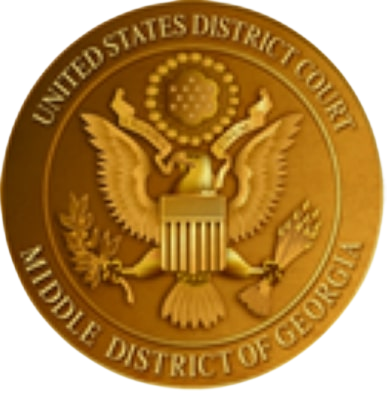
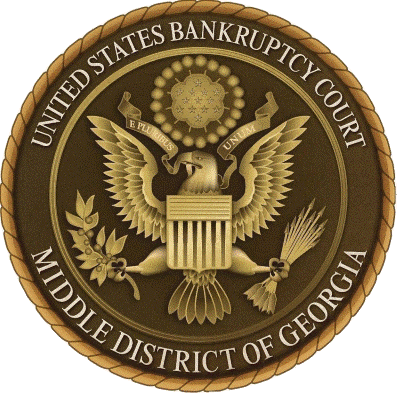
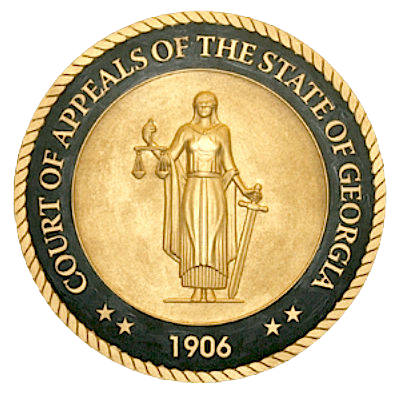
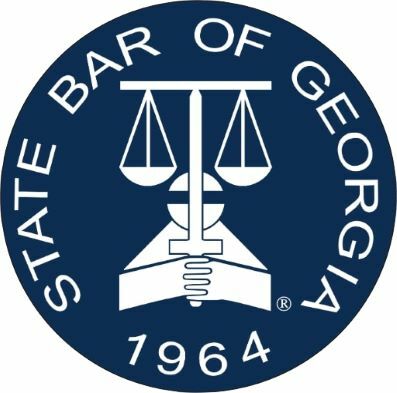
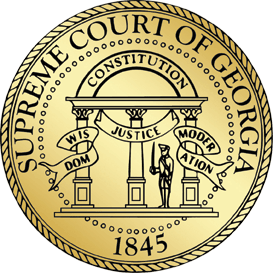
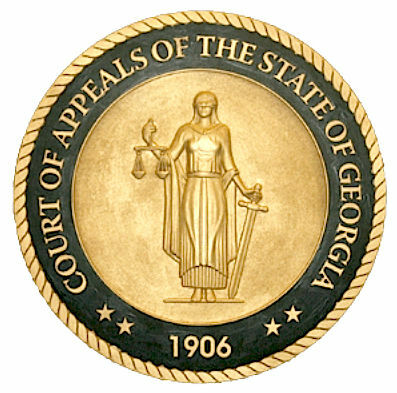
Content, including images, displayed on this website is protected by copyright laws. Downloading, republication, retransmission
or reproduction of content on this website is strictly prohibited. Terms of Use | Privacy Policy